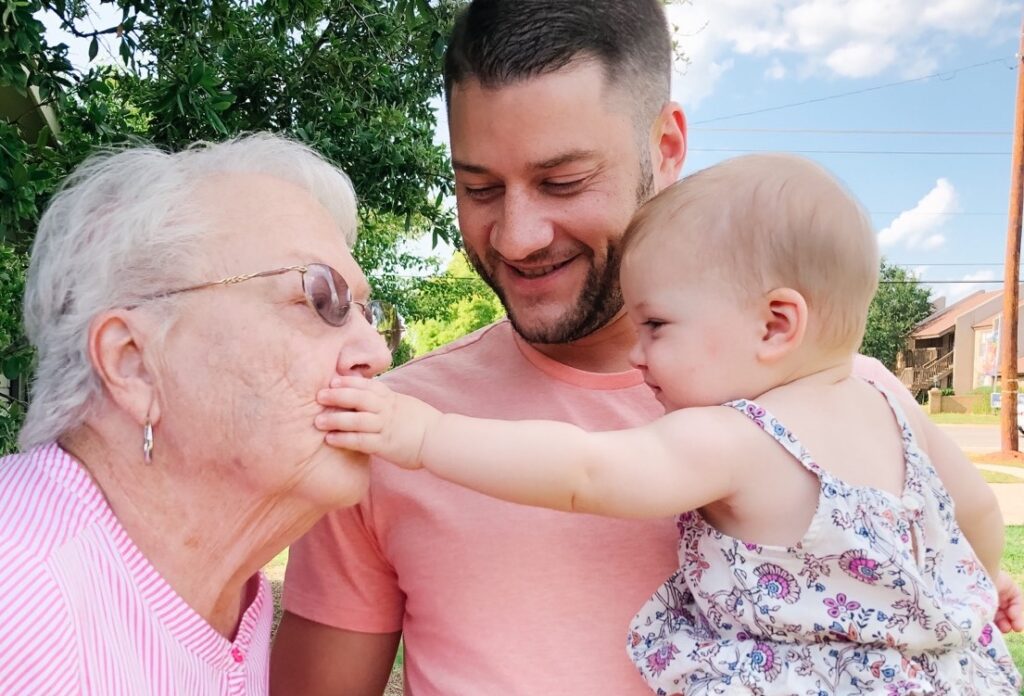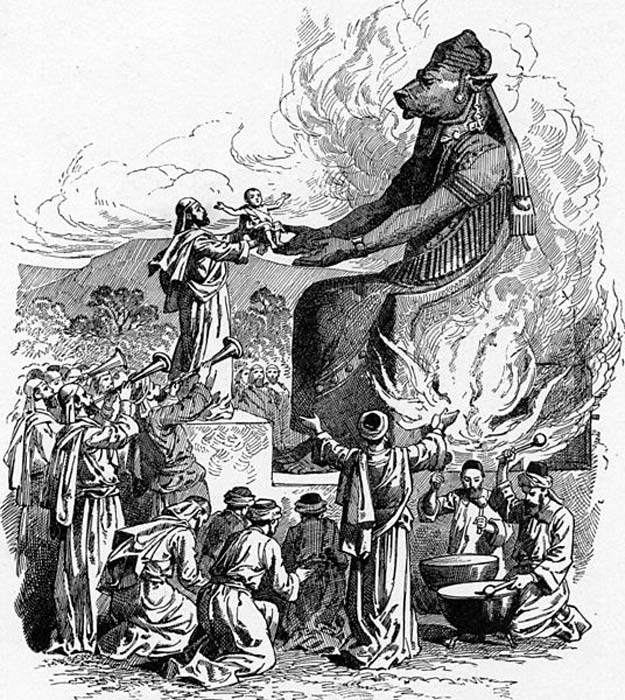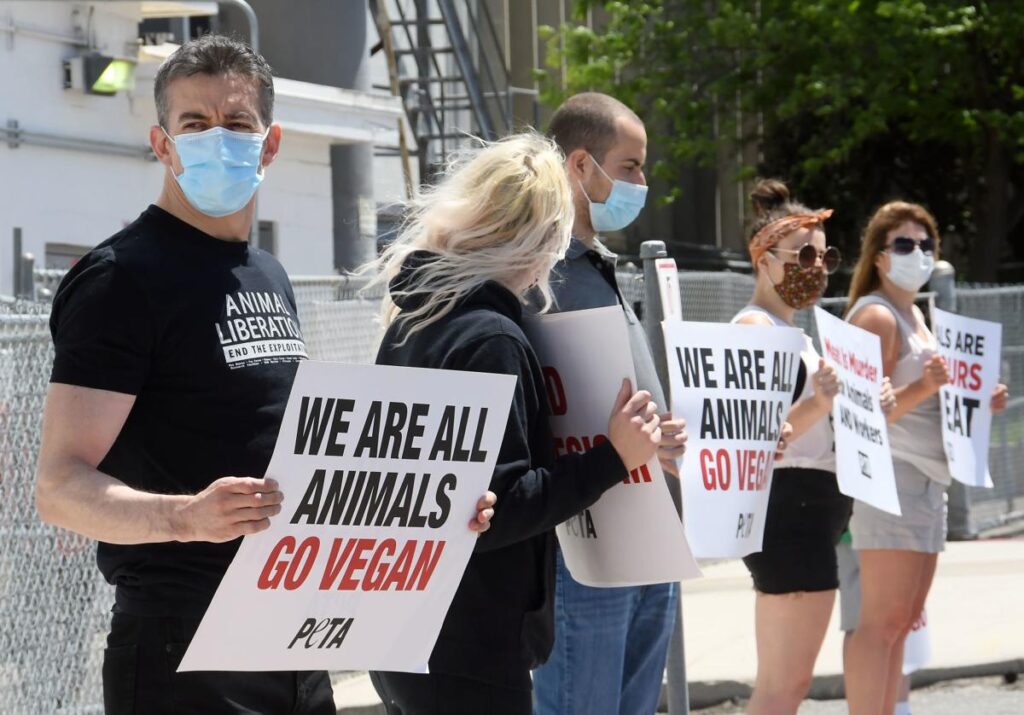
You can see terrible things on the Internet. And once you see something, you can’t unsee it.
Last week I stumbled across a video that I wish I hadn’t. Having watched it, I can’t stop thinking about it. And having thought about, it’s made me mindful of something very important and relevant about this particular moment in history.
That “moment” is one in which powerful forces are endeavoring to pull down and replace as many aspects of Western civilizational heritage as possible, and do so in the name of justice and equality. There’s a great and terrible irony in that, which I’ll get to in a moment.
The video I saw was security camera footage of a side street in the major Chinese city of Foshan. (My sincere apologies in advance for what I’m about to share with you. As horrific as this description will sound, it’s actually worse than what I’ll describe. And I will not be linking to it. You’ll just have to take my word for it.)
Although I’d never seen it or heard about, I’ve since learned that the video was leaked and went viral back in late 2011. (<-Wikipedia article)
The now infamous surveillance camera footage of a busy street shows a two year old little girl, Wang Yue, toddling out into the street and standing there for a moment before being hit by a very slow moving delivery van.
The child is knocked down and then the front, passenger side tire runs over her body. The puzzled driver pauses for a few seconds. The proceeds so that the rear tire also runs over her. I wish I could tell you that this is the worst of it.
The child lies in the street, moving perceptibly, as dozens of people walk by without stopping. One man literally steps over the toddler. There are people everywhere, but no one helps. No one intervenes.
Eventually, a another truck comes into view.
When watching the the video for the first time, you think, “Oh good, this driver will stop and get out of the truck to check on the child lying in the street.”
Oh, how I wish that was what happens.
The truck slows momentarily to assess the obstacle, and then keeps moving forward. The driver doesn’t even make an attempt to steer around little Yue.
She doesn’t move any more after that. But people continue to walk by her and around her, as if she’s not there.
As it turns out the video became a national embarrassment in China, and a horror and a byword around the world. But it illustrated a truth that many of us have known for a long time. Human life is cheap in China.
The fact is, human life is cheap in lots of places around the world. I’ve visited many of them. I’ve been to places where the locals think nothing of seeing a human body lying in a ditch or floating down the river.
Most of us who were born into Western cultures were raised with an ethic that assumed every human life was signficant. Even the lives of people we don’t know. We share a core cultural sensibility that human life is distinctly precious.
Even after 47 years of legalized abortion in the U.S., we’re still not comfortable with it as a culture. Christians (for the most part) oppose it. Feminists and Progressives reveal their discomfort with it by creating euphemisms like “lump of tissue” to avoid having to think about what they’re really talking about. There’s a deeply ingrained civilizational reason for that.
It’s the same reason the videoed death of George Floyd blew open a hole of horror and disgust so wide in the American public’s psyche, that Progressives, Marxists, and anarchists sensed (correctly apparently) that they could drive anything on their wish list through it.
And a long and ambitious wish list it is. Sensing the opportunity in the widespread revulsion at the taking of the life of a helpless black man, the enemies of Western culture blew right past police reform, and even past meaningful racial reconciliation, in order to advance a more radical agenda of symbolically and actually pulling down the Christianity-rooted civilization that has made the United States a land of opportunity and promise for numerous generations seeking a better life.
Yes, our esteem for human life is a product of that culture. But we take it for granted. And we think that most people all over the world hold that truth to be self evident, too. They don’t.
They don’t in the sprawling red light districts of Bombay and Calcutta. They don’t in the militia camps of the Congo. They don’t in the palaces of Saudi royalty. And they don’t in the work camps of China.
We also tend to think that this is the way people have always thought, but a review of history will reveal that this is not the case.
In all places and all times, human life has usually carried the same value as it did for those people stepping over the crushed body of a dying toddler.

It was true of the ancient Greeks. The Spartans famously required the city leaders to examine every newborn child to determine if it was fit to live.
Likewise, Aristotle argued that parents should be compelled by law to expose deformed or handicapped babies. To “expose” an infant was to abandon it on the city’s garbage heap so wild animals or the elements would kill him or, more commonly, her.
I recall reading a translation of a letter written by a Roman soldier in 1 B.C. The soldier was deployed far away from his pregnant wife. After encouraging her to take care of herself and the unborn child growing within her, he writes, “If you have the baby before I return, if it is a boy, let it live; if it is a girl, expose it.”
Early Christians in many Roman cities used to check the preferred exposure sites daily in order to rescue and raise abandoned babies . . . who were usually girls.
Girl babies back then, as now in many places around the world, are killed without a thought. But not in the U.S.. Not yet, anyway, although we now have our advocates for sex selection abortions and terminations for imperfect babies. But these advocates have clearly rejected the traditions of Western (Christian) Civilization.
Even so, we are still a culture that values life. It’s why, in the midst of the Covid-19 pandemic, our default response as a society is to risk impoverishing millions in order to preserve the lives of thousands. Even if a good number of those thousands were likely to die in the next year or so anyway.
That’s how much we value life as a culture. So, where does this ethic come from?
Certainly not from Eastern cultures. Not from Marxist ideology. Not from paganism. No, it is a legacy of a Christian heritage that, in ways unique among all the civilizations that currently exist, or have ever existed, holds human life to be precious.
As historian Tom Holland has noted in his extraordinary new book, Dominion: How the Christian Revolution Remade the World . . .
To live in a Western country is to live in a society still saturated by Christian concepts and assumptions.
Even while our Western system of values is being rejected and vilified by several generations of Americans, that legacy persists. It’s in our cultural DNA. For the moment, anyway.
That brings me to the irony that I mentioned above.
Those pulling down the statues of “dead white men” and calling for an end to our economic and political “systems of oppression” are attacking the very thing that best produces the things they say they value most.
For example, whereever the seeds of the gospel have taken root and flourished, cultures have emerged in which the value of human life rose. How could a faith built on “God so loved the world . . .” produce anything else.
When the New Covenant transforms a critical mass of people for multiple generations in a place, the status of women invariably rises. They go from being treated like property or children—as is the case in many cultures throughout history and across the world today–to enjoying largely the same rights as men. How could a Kingdom that affrims that “in Christ there is neither male nor female” have any other effect?
Slavery? The abolitionist cause rose and grew in Great Britain largely through the empire’s pulpits and prayer meetings. Then the same in the fledgling, expanding United States. Ultimately, the British Empire became the world’s most powerful force for ending the slave trade. And the United States fought one of history’s bloodiest civil wars over ending its expansion.
How could worship of a King who described His mission as proclaiming release to the captives and setting free the oppressed result in any other ethic?
Even the “animal rights” movement could (but won’t) see its ethical forerunner in the churches of Great Britain. The same men and women who formed the spiritual and intellectual hub of the abolitionist movement in Great Britain—William Wilberforce, Hannah More, et.al.,—voiced the first calls for “animal welfare” reform. And Christians wrote the world’s first animal cruelty laws in Ireland, England, and the American colonies.
Well, that’s not quite true. The first codified prohibition against animal cruelty is in the Bible. (See: Ex. 23:5; Lev. 22:8; Deut. 22:6; Deut. 25:4; Prov. 12:10)
Of course, the Christian ethic of championing animal welfare has mutated in our time into a belief in animal rights. That’s a very different thing.
That shift began in earnest back in the ’60s and ’70s. Back then, in their youth, the Boomer generation that runs most of the country’s institutions today, convinced themselves (with a lot of spiritual help) that the Western foundation that had delivered so much progress wasn’t bringing change fast enough. That, in fact, it was the problem, rather than the solution.
So they embraced modernized versions of Eastern religions. Those religions hold that “all” life is equally precious. That the life in insects and reptiles and chickens is no less sacred than the life of a child.
Jesus once rebuked the Pharisees saying, “You blind guides! You strain out a gnat but swallow a camel.” (Matt. 23:24)
It appears that in Jesus’ time, some of the ancient Pharisees had adopted a practice very similar to followers of the Jain religion in India–they drank water through a piece of cloth so as to not accidentally ingest a tiny insect such as a gnat.
The Pharisees did this because insects were unclean, forbidden food according to Levitical law. The Jain do this to this day because they are not permitted to take animal life in any form. For this same reason, they are not allowed to eat after dark because this might involve accidently swallowing a gnat.
The fruit of this ethic and similar ones is evident throughout the cultures rooted in Eastern religions. Elevating the value of animal life has the effect of diminshing the value and uniqueness of human life.

Thus we have exchanged the Christian, compassionate animal welfare ethic for a pagan religious paradigm that invariably results in death and misery for humanity. It’s no coincidence that places where this is the deeply-rooted dominant view are among the worst places on earth to be born poor, or a girl.
Which brings us to an unpleasant, under-appreciated reality.
The only alternative to the Western heritage currently under assault is— paganism. Not modernism. Paganism. Modernism is an expression and effect of the Kingdom of Jesus Christ.
In a very real sense, the battle lines currently being formed are about the re-paganization of the West. (Please note the number of wiccan, druid, neo-pagan, and gaia worshippers in the ranks of the Progressive vanguard.)
And that means that just a lttle farther down this path, a lot of very sweet, very well-meaning pastors and Christians who, with the best of intentions, have embraced this “social justice” moment are about to find themselves in an awkward position.
They will discover they’ve unwittingly become a part of the furious hacking at the limb we’re all sitting on and, in the process, having weakened the very institutions that hold out the best hope for advancing justice and equality . . . and life . . . for everyone.



Terrific read, David. You spur me on to think my faith and ideals. And make me want to be a better writer.
Pingback: Follow Up to “Human Life’ |